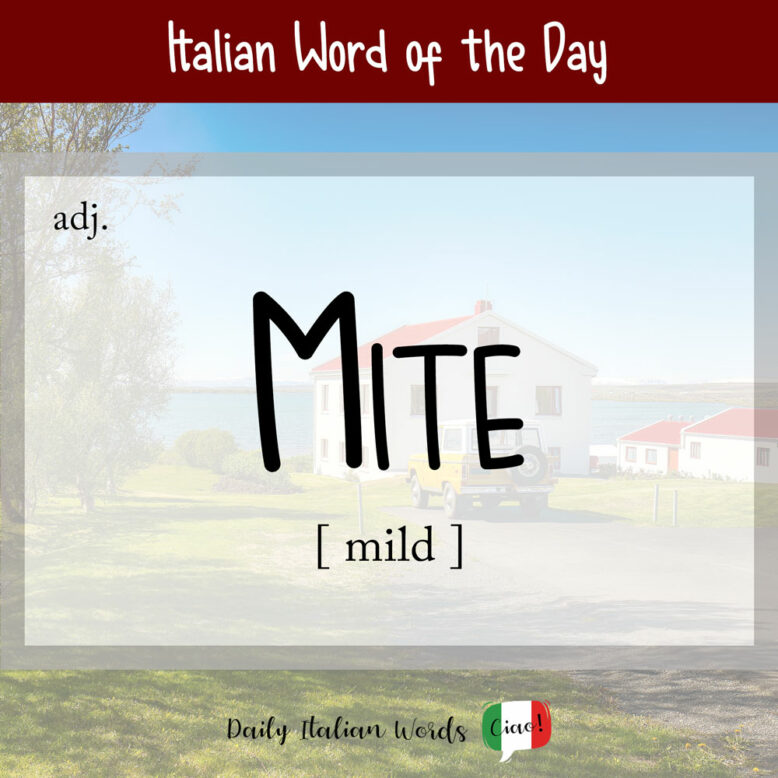The Italian adjective mite (plural: miti), which comes from the Latin mitis of the same meaning, has a number of English translations but in every case, it describes something that lacks severity or harshness.

The first translation, mild or temperate, is mostly used to talk about the climate, weather or air.
Il Regno Unito ha un clima mite.
The UK has a mild climate.

When used to describe a person’s character, it means mild-mannered, gentle or good-natured. It may also translate as lenient when talking about someone who typically doles out punishment such as a parent, referee or judge.
Mia mamma ha un carattere mite.
My mom is mild-mannered.
Il giudice è stato mite con lui.
The judge was lenient with him.

In the case of animals, the closest translation is docile, tame or meek.
Il cane è mite. Non ti morderà.
The dog is tame. He won’t bite.

The final translation, which is moderate or reasonable, is used to describe things, such as prices, conditions or expectations, which aren’t excessive or burdensome.
Abbiamo camminato su una pendenza mite.
We walked up a moderate slope.
Le sue richieste sono miti.*
His demands are reasonable.
*Note: Miti is also the plural of mito, which means idol, myth, legend or folk tale.

Heather Broster is a graduate with honours in linguistics from the University of Western Ontario. She is an aspiring polyglot, proficient in English and Italian, as well as Japanese, Welsh, and French to varying degrees of fluency. Originally from Toronto, Heather has resided in various countries, notably Italy for a period of six years. Her primary focus lies in the fields of language acquisition, education, and bilingual instruction.


